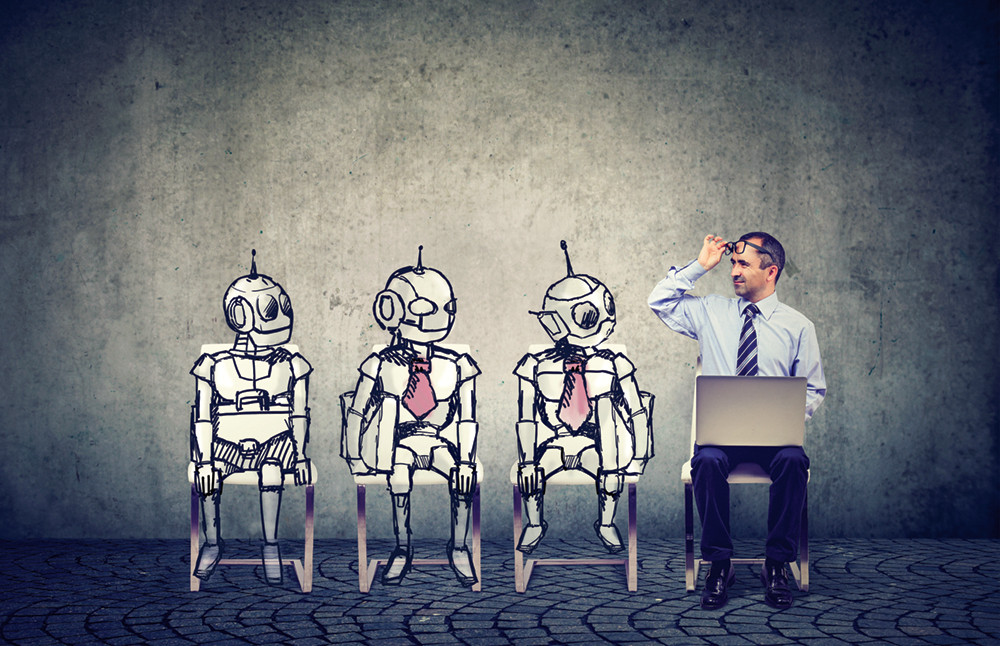
Workers, entrepreneurs, and companies should explore ways to incorporate artificial intelligence into their workflows and businesses, and give the job displacement fears a rest.
I recently saw a quote on Facebook attributed to Sigmund Freud that I was going to share on social media.
“One day, in retrospect, the years of struggle will strike you as the most beautiful,” the quote read.
It’s a lovely quote, but something about it didn’t smell right. Though I haven’t read Freud since college, it didn’t strike me as something he’d say. So, I decided to investigate.
First, I went to Wikiquote – my go-to source for sourcing quotes. Nothing. So, then I went to Quote Investigator. Same result.
After striking out on the web, I decided I’d try academia. In the past, I’ve debunked fake Lincoln and Twain quotes by consulting historians. This might have worked if I had persisted, but I got frustrated after about 20 minutes. (Finding Freud historians is harder than one might think.)
Then I got an idea: I’ll ask AI.
I have used artificial intelligence here and there on small tasks, but I am far from an expert. Fortunately, I at least remembered my password for ChatGPT, which I used to ask about the quote.
I received this response a nanosecond later:
“The quote you mentioned, ‘One day, in retrospect, the years of struggle will strike you as the most beautiful,’ is commonly attributed to Sigmund Freud. However, there is no concrete evidence that he actually said or wrote these words. It is possible that the quote has been paraphrased or interpreted from some of Freud’s ideas or writings, but the precise origin of the quote remains uncertain. As with many famous quotes, the true source can sometimes become blurred, and they are often attributed to well-known figures for their wisdom and authority. Regardless of its origin, the quote carries a meaningful message about finding beauty or meaning in life’s challenges and struggles when reflecting on them later.”
Many people reading this might not be impressed, but I found the response and the whole experience exhilarating.
My personal experience with AI helped me understand how disruptive the technology will be. It’s one thing to read a BBC report stating that AI could destroy 300 million jobs, and it’s something else to see firsthand how AI will make some jobs obsolete.
If you are a fact-checker for a magazine – I mean a real fact-checker, not a journalist pretending to fact check government narratives for social media or partisan organisations – my suggestion is to start working on your resume, because we are going to need a lot fewer of them.
AI is streamlining the process. One good editor with a competent intern can probably handle what a small team of fact-checkers was doing a few years ago with the help of AI.
Getting Beyond the Doom and Gloom of AI
While there is no consensus on the future of artificial intelligence, there has been a lot of doom and gloom surrounding its widespread adoption.
This is understandable. Popular culture – including hit films such as 2001: A Space Odyssey, Alien, and The Terminator – has long portrayed AI as a dangerous and sinister force. In many cases we see AI not just working against the interests of humans, but actively trying to destroy humans.
I can’t speak to the likelihood of AI rising to destroy the human race like Skynet, but I can speak to the economic consequences of AI.
Fears that AI will destroy hundreds of millions of jobs might be relatively new, but the idea of machines replacing human labour is not new at all. The Industrial Revolution might have resulted in material wealth our ancestors could scarcely dream of, but it also brought a great deal of fear and social backlash because of the job destruction it wrought.
Buggy whip makers could be forgiven for despising the automobile, because it slowly destroyed their livelihood. And candle makers surely cursed the light bulb. Yet these technologies improved the lives of humans in ways we can scarcely comprehend.
Thousands of other examples could be cited, including the later rise of computers, which would destroy typewriter companies and the jobs of fax machine repairmen. It’s easy to forget just how bitterly many people – especially intellectuals – opposed the rise of computers because they would displace workers and cause social change.
But this is the nature of technology. It makes us more efficient, but this efficiency also has a cost: it displaces workers and makes jobs that were once important obsolete. This is the basic idea of creative destruction, a term coined by Austrian political economist Joseph Schumpeter.
In his seminal work Capitalism, Socialism, and Democracy, Schumpeter described the evolutionary process of capitalism. Schumpeter understood that capitalism is never stagnant or stationary; on the contrary, it ‘incessantly revolutionises the economic structure from within, incessantly destroying the old one.’
Schumpeter understood humans would naturally feel a desire to ‘conserve obsolescent industries’, but he saw this as a generally futile, self-defeating task, which is why he argued that ‘perfect’ competition was the best way to maximise human prosperity.
“The question is not how capitalism administers existing structures,” wrote Schumpeter, “but how it creates and destroys them ….”
This destruction of course leaves in its wake a broad swathe of economic carnage – including the jobs of buggy whip makers, fax machine repairmen, candle makers, and countless others – but it’s also the engine of human prosperity.
It’s okay to have some security concerns about AI, even though I personally don’t think we need to worry about Skynet sending a cyborg back in time to kill Sarah Connor. But workers, entrepreneurs, and companies should celebrate the technology and explore ways to incorporate it into their workflow and businesses – and give the job displacement fears a rest.
Source: fee.org






